‘Thank God the brain cancer waited for the Pulitzer’
 |
Joseph, left, in 2013, with Wendy Ruderman and Barbara Laker, the reporters behind the Philadelphia Daily News’ Pulitzer Prize-winning investigation of police corruption in the city. Photo courtesy of Gar Joseph.
|

 |
| Garnet "Gar" Joseph |
Gar Joseph, 71, legendary Daily News editor
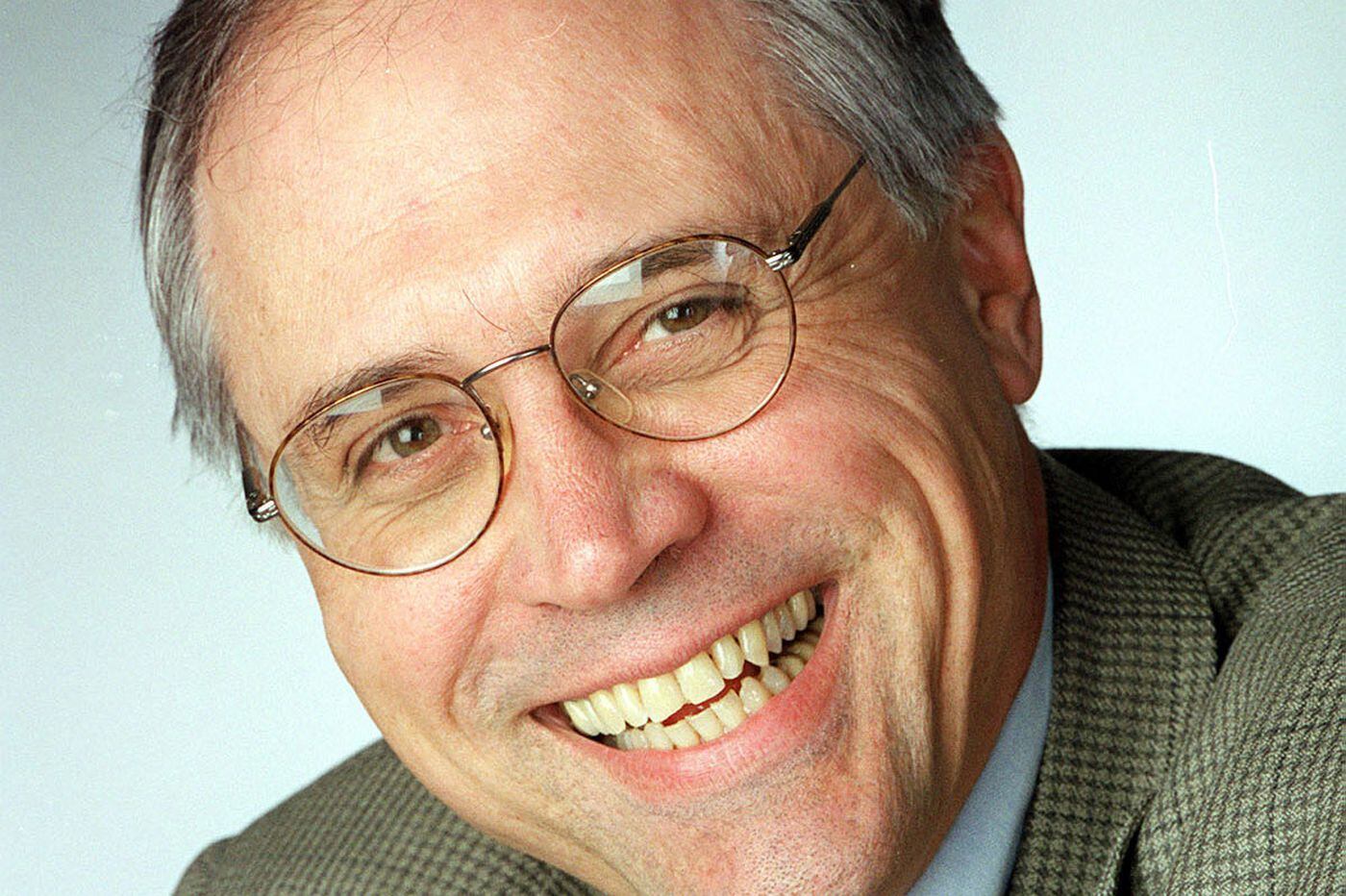
The first few times Gar Joseph applied for a reporting job at the Philadelphia Daily News, the editors turned him down.
On paper, he was a solid candidate, a whip-smart 30-something assistant metro editor at the Wilmington News Journal. But there was some disagreement over whether he was too buttoned-up for the tabloid, which proudly wore its irreverent heart on its sleeve.
What was clear to the paper’s editors was that Mr. Joseph didn’t give up easily, even if the odds weren’t in his favor. He kept on telling them he belonged at the Daily News, as simple as that.
They finally relented in 1981, hiring him to work on the education beat. It quickly became apparent that Mr. Joseph was more than just a good fit for the newsroom: He lived and breathed the place, and seemed to understand better than anyone what made it tick.
In the 34 years that followed, Mr. Joseph established himself as a Daily News legend, creating the popular political column Clout, editing the paper’s Pulitzer Prize-winning coverage of police corruption, and shepherding the careers of countless journalists upon whom he dispensed a unique blend of unblinking support and withering sarcasm.
“I got a lot of s—, in retrospect, for not hiring him sooner,” said former Daily News editor Zack Stalberg, now retired and living in New Mexico.
“He was a prince,” said former Daily News editor Michael Days, now The Inquirer’s vice president of diversity and inclusion. “His passing breaks my heart.”
“The Daily News has served this community with distinction for nearly 100 years, and Gar Joseph deserves enormous credit for setting a high standard for the paper’s many years of award-winning journalism,” said Stan Wischnowski, executive editor and senior vice president of The Inquirer.
“He not only led the paper’s 2010 Pulitzer Prize for investigative journalism and edited countless other important stories, but he also mentored and developed so many outstanding journalists. We can never thank him enough for his great impact on journalism in Philadelphia.”
Garnett Joseph was born in Paterson, N.J., to Willie Fern Brown and Howard A. Joseph. He grew up in the small blue-collar borough of Midland Park, the oldest of four children.
“He’s the only one of my friends who knew what he wanted to do when he was 16. He wanted to be a journalist,” said New York Newsday horse-racing writer Ed McNamara, who met Mr. Joseph when they were adolescents, bonding over a shared love of tabletop baseball games. “He had a book in his room, A Practical Guide to Politics. I looked at it and thought, ‘This is boring.’ But that’s what he wanted to do.”
From those North Jersey roots, he moved to a small Missouri town, Warrensburg, to study journalism at what was then Central Missouri State University, now the University of Central Missouri. He later took special pride in telling friends how he worked as an usher for the Kansas City Royals during the team’s inaugural season in 1969.
Mr. Joseph became the first in his family to receive a college degree, then landed his first journalism job at the Sedalia (Mo.) Democrat. Reporting gigs followed at the Kansas City (Mo.) Star and Times, the Pottsville (Pa.) Republican, and the Asbury Park (N.J.) Press, before he was hired in Wilmington in 1978.
But he longed to work at the Daily News. The tabloid was punchy and funny and matter-of-fact, like Mr. Joseph himself.
His start on the paper’s education beat coincided with a public school teacher strike. It was about that time that Mr. Joseph met Sam Katz, a school board appointee who later ran for mayor. “He always knew stuff about the school district before I did,” Katz said, “but he had a great way of making you feel like he was hearing it all for the first time.”
In the mid-1980s, Mr. Joseph was asked to work in the paper’s City Hall bureau. He was reluctant to take the assignment and insisted that he’d do it for only a
“That was enough for him to discover that he loved city politics — especially the swirl of ward fights, backroom deals, petty corruption, and self-promotion that would all too frequently determine who got elected to public office,” recalled Bob Warner, a retired Daily News and Inquirer political reporter.
Talking shop about the local political world became one of Mr. Joseph’s favorite pastimes, right up there with lamenting the usually sorry state of the Phillies or sharing his vast knowledge of rail systems and trains. He appeared frequently on local television newsmagazine programs as a political commentator.
The city’s movers and shakers grew accustomed to being interrogated by Mr. Joseph, even after he was named an assistant city editor in 1985. “I’d talk to him all the time,” said former U.S. Rep. Bob Brady. “Don’t get me wrong: If I screwed up, he’d write about it. I didn’t expect any favoritism. But Gar was always a fair guy.”
Mr. Joseph’s fascination with politics culminated in 1996 with the birth of Clout, his column offering a behind-the-scenes look at elected officials — the egos, the deal-making, the endless gossip
“That way of looking at people in government and politics and power was groundbreaking at the time,” Stalberg said.
Mr. Joseph’s identification with the column — which later was compiled by a rotating cast of Daily News reporters — ran so deep that he used Clout Page as his pseudonym on Twitter, Facebook, and Instagram. Clout is now a weekly Inquirer column written mainly by Chris Brennan.
David Lee Preston, editor of The Inquirer’s Justice and Injustice team, who worked with Mr. Joseph at the Daily News and in Wilmington and Kansas City, viewed his friend of 44 years as a “champion of the downtrodden” who “rejoiced in skewering the powerful.”
Recently retired Harrisburg-based columnist John M. Baer wrote in an email that “Gar was my editor and my friend for 25 years-plus. He loved baseball, politics, trains, and truth. Because of his sense of self and sense of humor, working with him never felt like work.”
In an era of ever-growing digital distractions, Mr. Joseph instructed reporters that he was interested only in stories that could grab and hold a reader’s attention. “His lack of bedside manner was bracing, at best,” said former Daily News reporter Catherine Lucey, who now covers the White House for the Wall Street Journal.
“When I covered City Hall, he routinely asked me: ‘You’re not going to make this really boring, are you?’ But his news judgment was dead-on, and he had a keen sense of the kind of story that sells a tabloid.”
But his Lou Grant persona masked a well of compassion that ran deep. Former Daily News and People Magazine writer Nicole Weisensee Egan recalled how kind Joseph had been to her when her mother died. “Under that gruff exterior was this huge freaking heart,” she said.
“As much as he loved the Daily News, he loved the people that worked there even more. That is what made him a wonderful boss,” said Daily News and Inquirer reporter Stephanie Farr. “And that’s what allowed any reporter in the newsroom to fight like hell with him over a story one day, and come in the next day knowing everything would be all right.”
Before taking on a management role, he served as an officer in what was then Local 10, the Newspaper Guild of Greater Philadelphia, now the NewsGuild of Greater Philadelphia.
Mr. Joseph had a full life outside the paper. He had a vast knowledge and appreciation for R&B music. An avid runner, he regularly participated in the annual Broad Street Run and many other races. In 1982, he crashed a party that was being held in Mount Airy for Inquirer staffers, and started talking to a newly hired reporter named Martha Woodall. He had the trim build of a runner, she remembered, with shaggy hair and glasses. They started dating a year later.
“On our first date, we just talked for hours,” Woodall said. “There was an ease that we had together from the very beginning. I felt like I could tell him anything.”
The couple married in 1985. “She taught me how to love,” Mr. Joseph once told a colleague. They had two sons, Andrew and Nick.
Mr. Joseph’s responsibilities at the Daily News grew toward the end of his career, as the newsroom shrank amid cutbacks and multiple ownership changes. He was named city editor in 2005, and assistant managing editor a few years later.
Days called Mr. Joseph “a key architect to all of our finest moments,” and praised his ability to manage the day-to-day adventures of the city desk, along with more ambitious long-term projects.
“In his heart, he was a writer, but Gar was saddled with being an editor because he could do it, and was one of the few who would,” said WHYY-FM’s Dave Davies, who worked with Mr. Joseph at the Daily News.
Reporters often found him in a frenzied state at his desk, tangled in the wires of a headset while he tried to map out the next day’s paper, sometimes with a neglected lunch sitting nearby. Those who made the mistake of asking whether he had read their emails were greeted with a singsong response dripping with frustration: “I get 600 emails a day. … ”
Still, he was never too busy to champion aspiring journalists. Inquirer.com producer Patricia Madej, a former Daily News intern from Temple University, broke down in tears Saturday when she was informed he had died. “Gar Joseph could have chosen anyone for a news internship with the Daily News, but took a chance on me — a features reporter with a handful of news clips, sending me to write a cover story not even a week on the job,” she said Sunday. “Whatever compelled him to make the choice had the most profound impact on my life and career.”
He also still found time for little pleasures, such as co-authoring the paper’s sex advice column, Steve & Mia, and a weekly wine column, Cheap Buzz.
Nothing made him quite as happy, though, as learning that his journalists had a good story on their hands. When Brennan and William Bender landed a scoop about former U.S. Rep. Chaka Fattah several years ago, Mr. Joseph sent them a gleeful email: “This story made me cross ‘retire’ from my to-do list for next week.”
But the biggest thrill of his career was editing “Tainted Justice,” a 2009 series by reporters Barbara Laker and Wendy Ruderman on an allegedly corrupt police narcotics squad, which was awarded the 2010 Pulitzer Prize for investigative reporting. Mr. Joseph’s impact on the series was the subject of a 2017 profile in the Columbia Journalism Review.
Laker recalled how Mr. Joseph balanced being brutally honest about a story’s shortcomings with giving a reporter a needed confidence boost. When she once shyly asked him what he thought of one of her articles, Mr. Joseph told her: “It was like polishing a Lexus.”
“You don’t forget words like that,” Laker said. “Ever.”
“He had a million zingers — they flew out of his mouth like shooting stars,” Ruderman said. “I loved him very much, and I know that Barbara and I would have never won a Pulitzer without him. Not a chance.”
Mr. Joseph’s cancer diagnosis came in the fall of 2015, after he one day found himself struggling to speak at work. Daily News staffers responded by piling into a conference room and filming a music video, set to the Ozzy Osbourne song “Crazy Train,” that solicited donations to the National Brain Tumor Society.
The illness forced Mr. Joseph to retire, but he refused to let it define him.
He met regularly with old friends and colleagues, traveled to Italy with his wife, and watched their son Andrew get married. He still turned up at political events, such as the traditional Election Day gathering at Famous 4th Street Deli, where he could be found in a fedora and a dark suit, sifting through rumors with candidates and consultants.
Mr. Joseph sometimes talked about his cancer battle with the nonchalance of someone explaining how to make a sandwich. He seemed neither angry about it nor surprised, and even penned a story about his repeated attempts to convince his doctors to share the less-than-rosy details about his survival odds.
“I am a journalist,” he wrote. “Sunshine is boring.”
In addition to his wife and sons, Mr. Joseph is survived by a brother, Robert, and two sisters, Dawn Serkin and Sharon Kowatch.
A memorial service will be held at 3 p.m. Saturday, Sept. 21, at the Chestnut Hill Friends Meeting, 20 E. Mermaid Lane, Philadelphia.
Memorial contributions can be made to the Division of Neuro-Oncology at Thomas Jefferson University, Office of Institutional Advancement, 125 S. Ninth St., Suite 600, Philadelphia, Pa. 19107, or to the National Brain Tumor Society, 55 Chapel St., Suite 200, Newton, Mass. 02458.



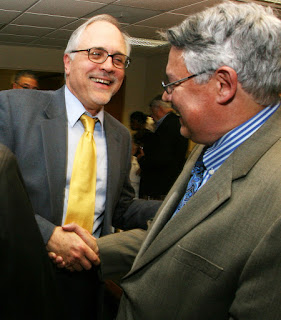
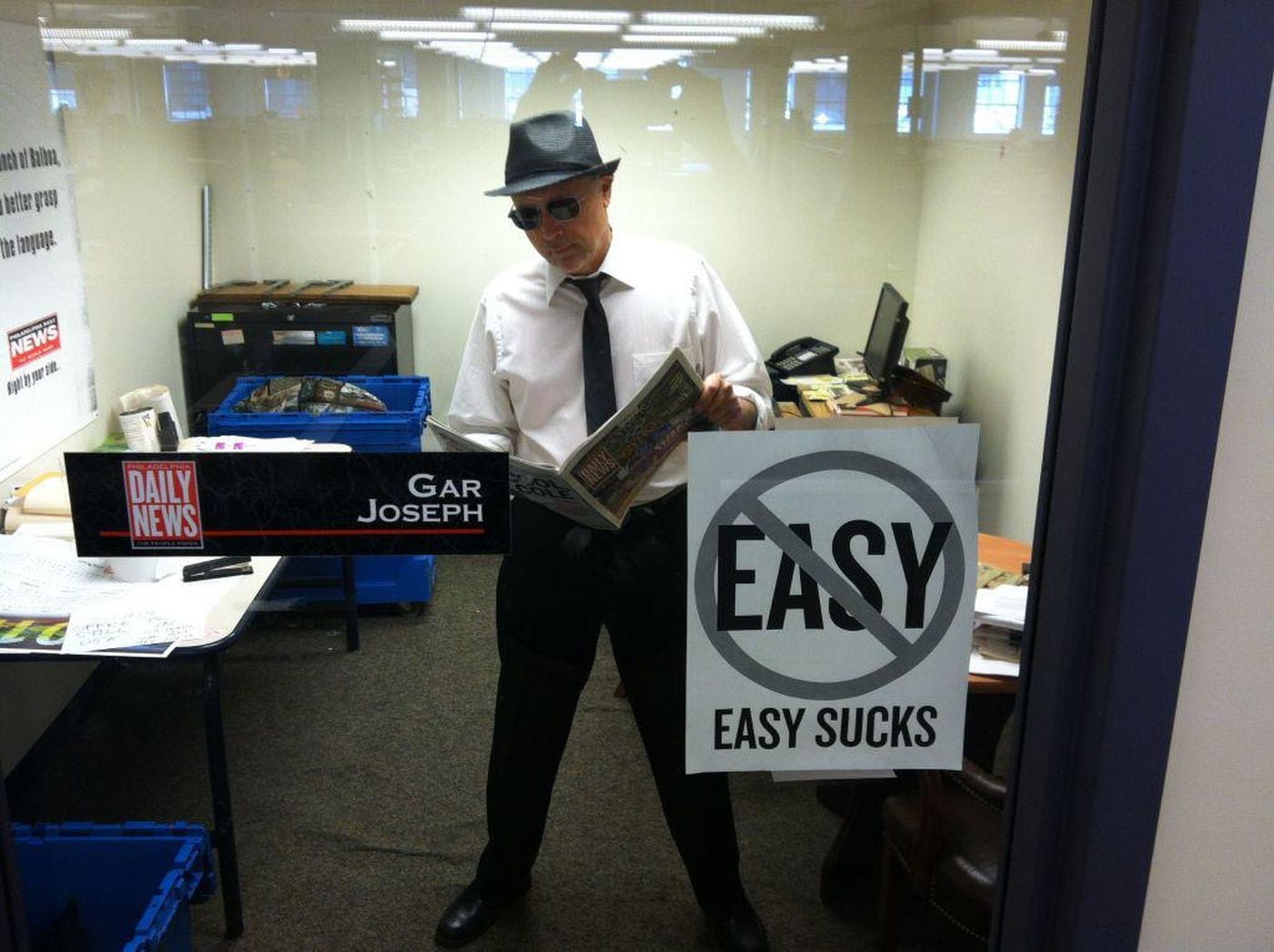
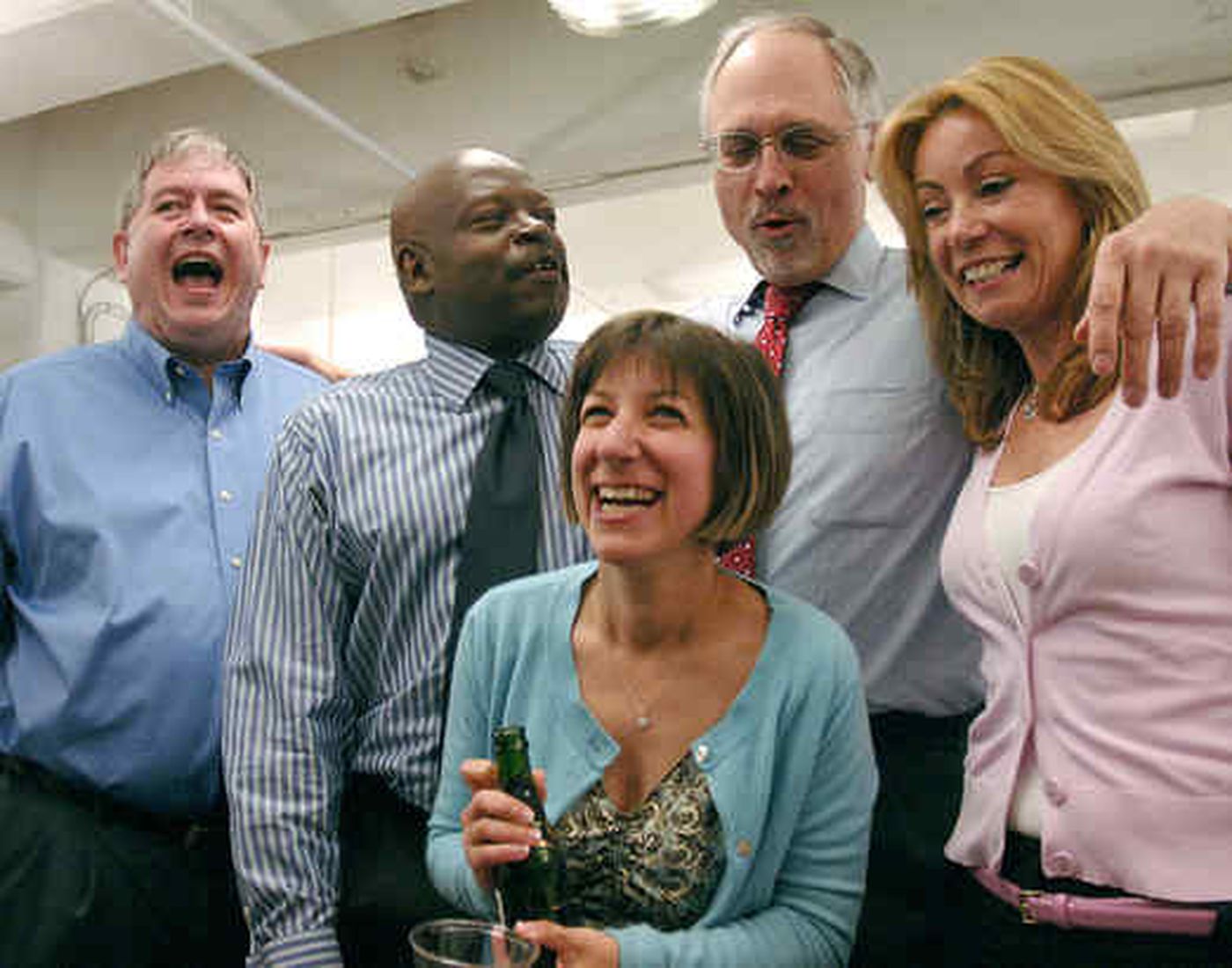
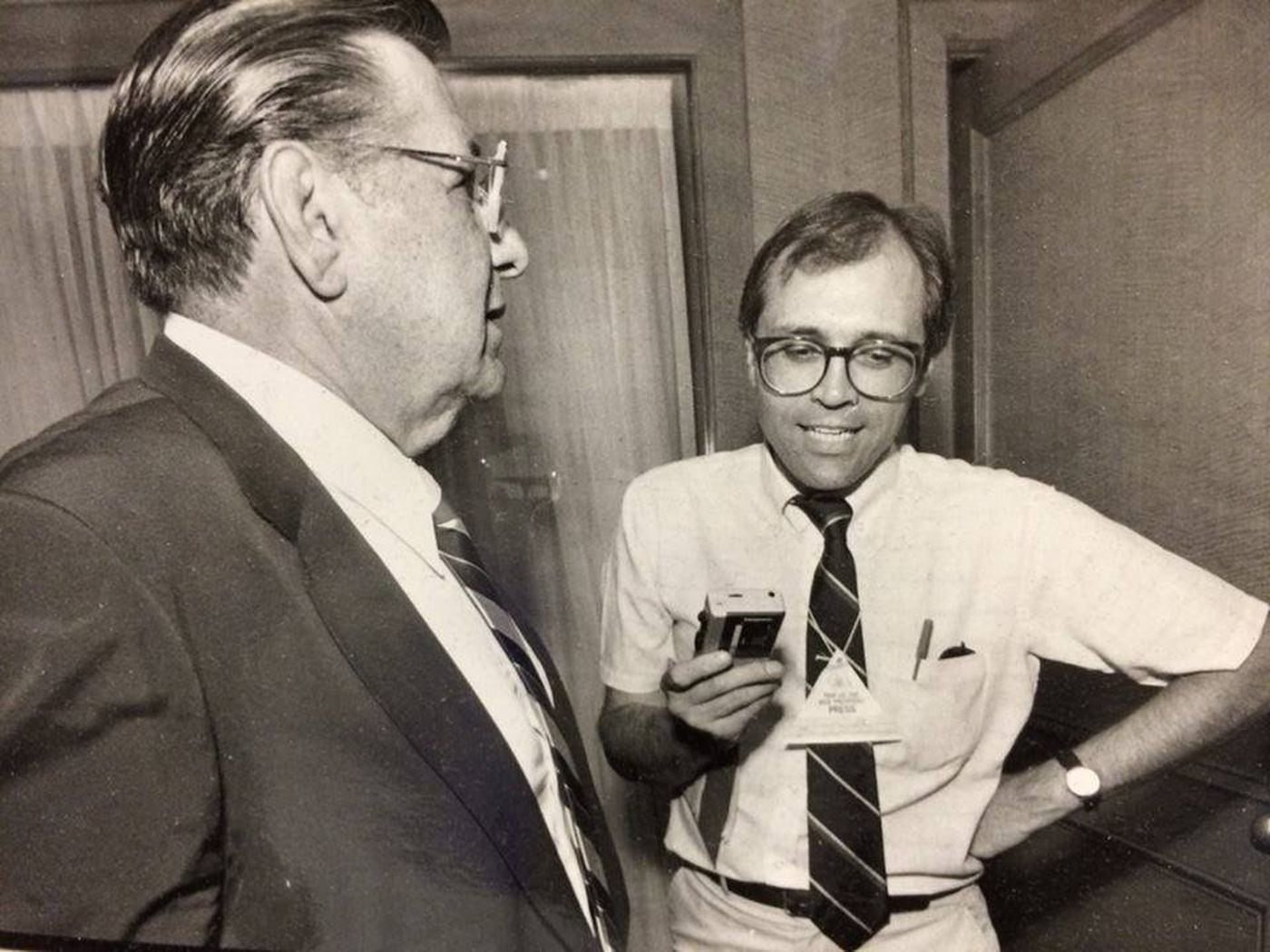
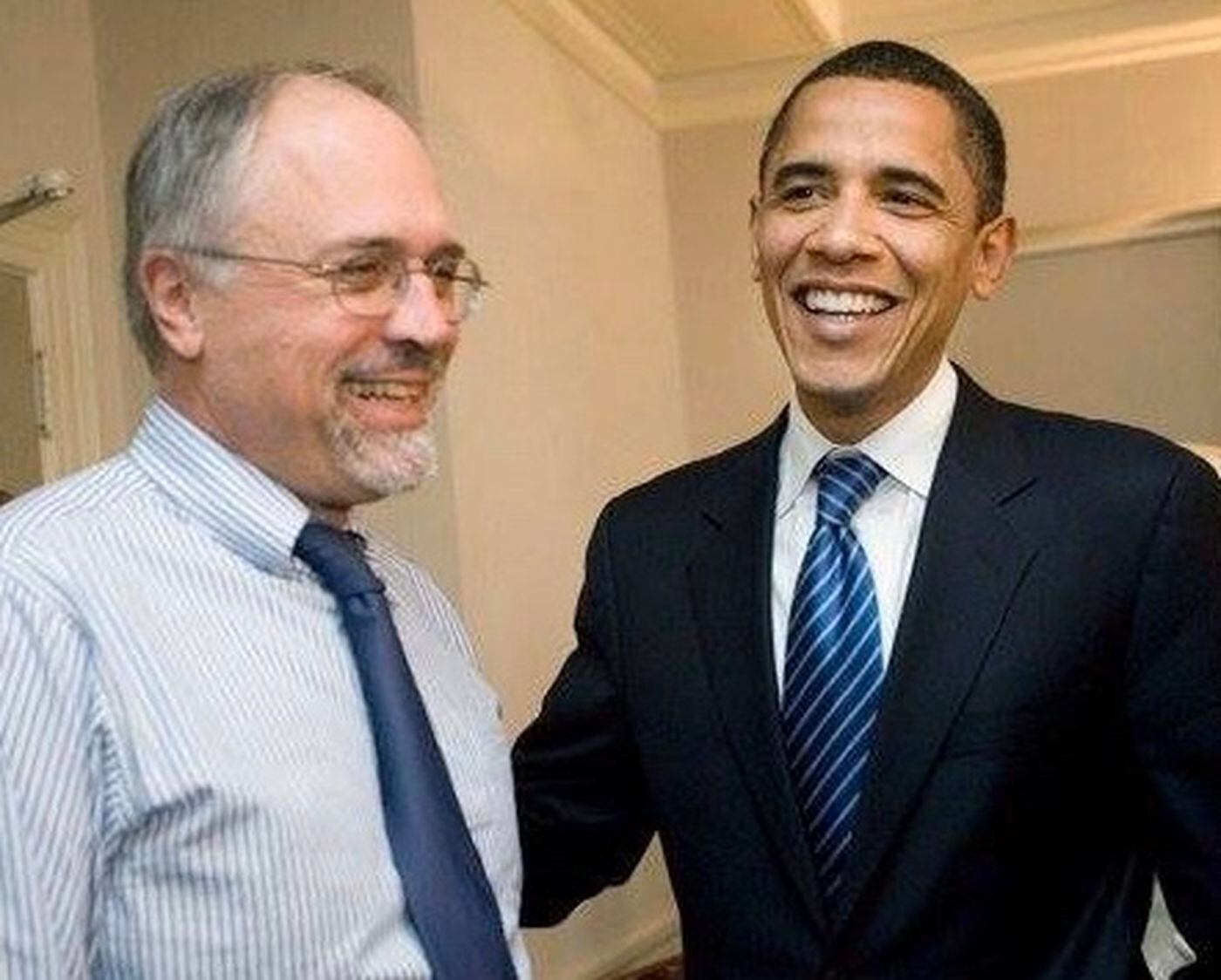
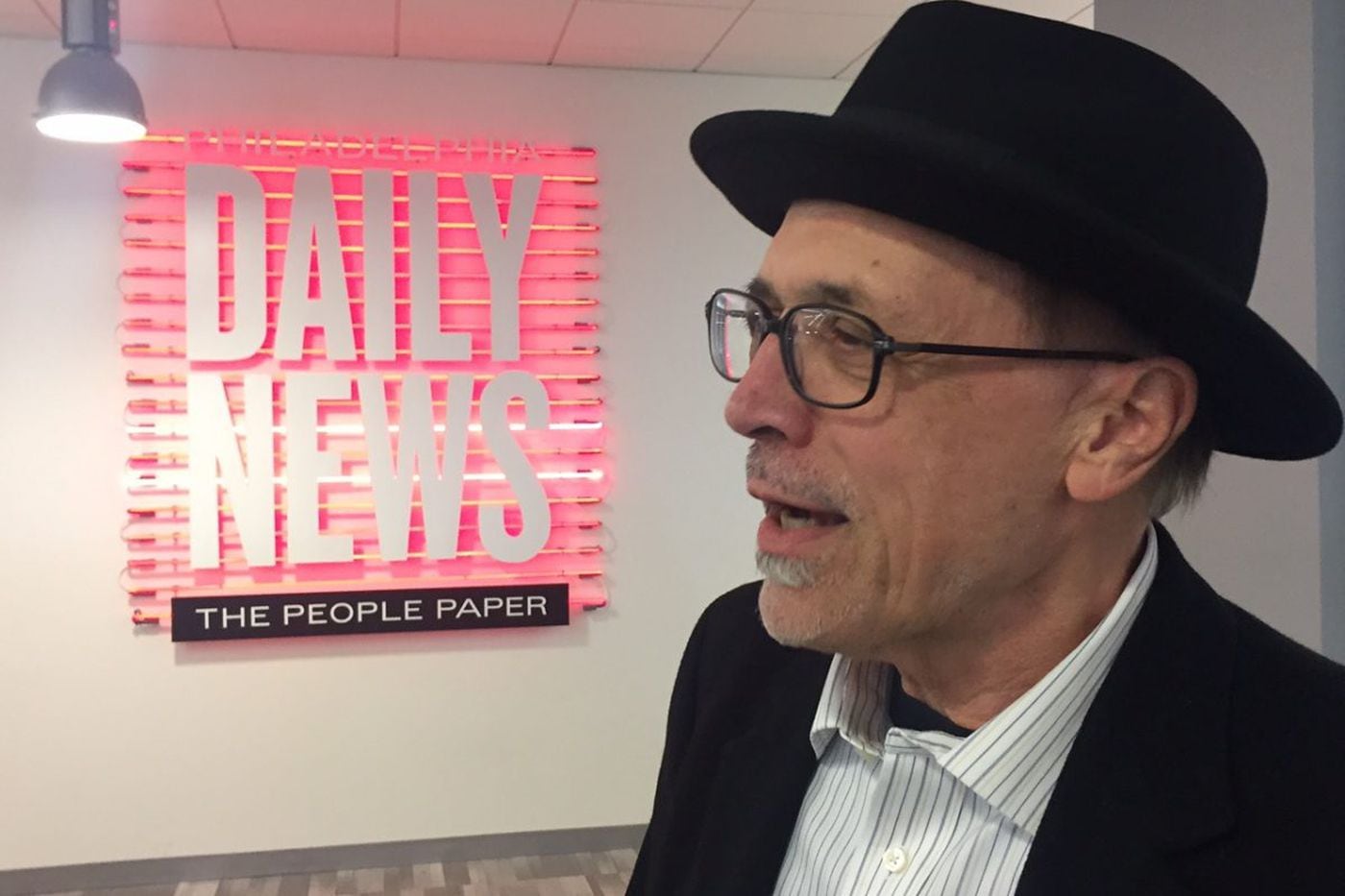

No comments:
Post a Comment